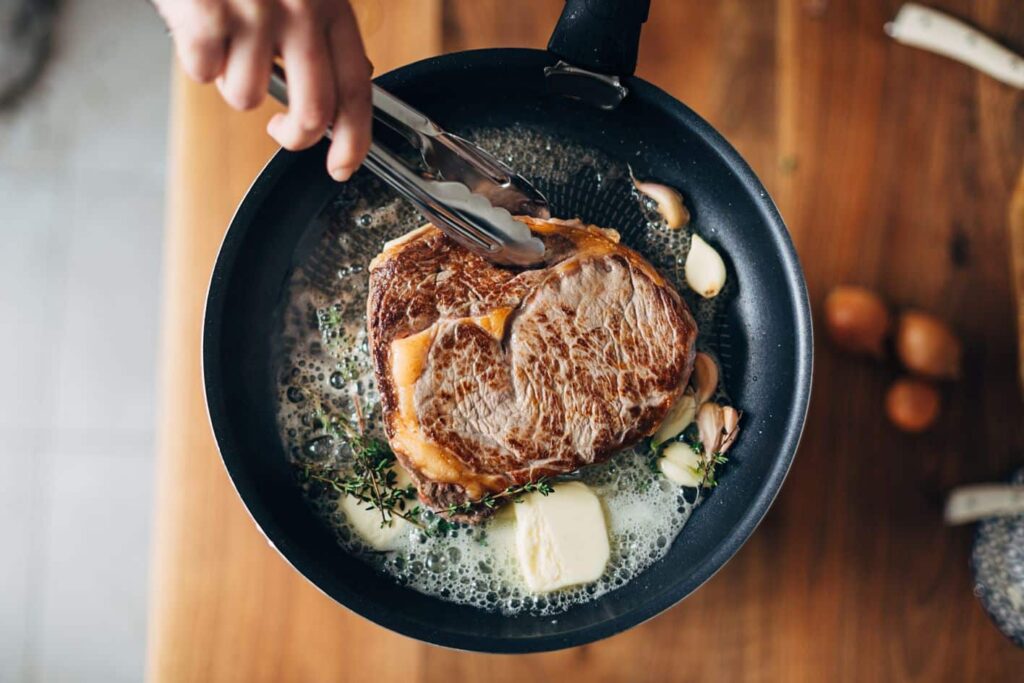Some of the most popular diets focus on cutting foods from your diet. Many people avoid processed foods, sugar, dairy, and even cooked foods. But what happens when you reduce all macronutrients?
Introduction: The No-Carbohydrate Diet.
What is a no-carb diet?
A no-carb or zero-carb diet is exactly what it sounds like: not eating any carbohydrates.
This doesn’t just mean cutting back on bread or cereal products. Because all plants contain some form of carbohydrate. Therefore, fruits, most vegetables, and plant foods are effectively eliminated from this diet. You can also say goodbye to beans, yogurt and milk with a carb-free plan.
Animal products make up the majority of the food in the diet.
“It’s almost always fats and proteins, such as meat, seafood, poultry, eggs, cheese, butter and oils,” says Katherine Basbaum, a registered dietitian at MyFitnessPal. “Although some no-carb dieters will allow themselves to eat small amounts of non-starchy vegetables, such as lettuce or spinach.”

No Carb, Low Carb: What’s the Difference?
There are already many low-carb diets to choose from: Atkins, Ketogenic, Paleo, South Beach, and many more. However, the difference between low-carb and no-carb diets is spelled out in their names.
A low-carb diet allows for some carbohydrate intake. While they greatly reduce the amount of carbs you can eat in a day, they still allow for some net carbs. Net carbs are calculated by subtracting fiber and sugar alcohols from total carbs. Fiber is still a carbohydrate, but it doesn’t have as big an impact on blood sugar levels as regular carbohydrates, according to UCLA Health.
Depending on the Atkins diet, daily net carbohydrate intake ranges from 20 grams to 100 grams. General carb guidelines for the ketogenic diet are to limit net carbs to less than 50 grams per day, or carbs should make up less than 10% of the food you eat each day. This is a significant difference compared to a carb-free diet such as a carnivore diet, which targets 0 grams of net carbs.
potential benefits
Some people report significant short-term weight loss on a no-carbohydrate diet, which Bussbaum says could just be “water weight.”
“Because it’s so restrictive, such a diet is really unsustainable. It’s important to remember that a balanced diet, one that doesn’t eliminate or destroy entire nutrients (in this case, carbohydrates), is what ensures you get the most for your body. The best way to get all the nutrients and fiber you need for optimal performance.
Fun fact: Did you know that MyFitnessPal provides you free content with information from registered dietitians and nutritionists? Download the app now!
shortcoming
With the diet high in fat, Bussbaum had a hard time believing this was a sustainable long-term solution.
“Since a lot of the fat consumed on a no-carb diet is likely to be saturated fat (the kind found in meat, cheese, and butter), and we know that high amounts of saturated fat in the diet raises ‘bad’ LDL Cholesterol, following this diet may increase the risk of cardiovascular disease.
Additionally, you can’t eat much else on this diet to balance out your high-fat intake. “When the body is deprived of a healthy balance of carbohydrates, fats and proteins, energy levels, healthy digestion, focus and productivity, and stamina can all be compromised,” Bussbaum says.
Is it worth it?
Basbaum says: I wouldn’t recommend it.
“We have no research to support any long-term weight loss or health benefits,” she said. “Additionally, the potential negative health consequences outweigh the unsustainable weight loss that people may experience during the early stages of the diet.”
There are ways to safely reduce carb intake without eliminating entire macronutrients, just as there are ways to lose weight safely and sustainably over time. Remember, before starting any new diet regimen, talk to your doctor to make sure it’s right for you.
One thing that helps? Start tracking your food intake with MyFitnessPal. Set big goals, find recipes, and feel empowered with the nutritional information you need to succeed.

